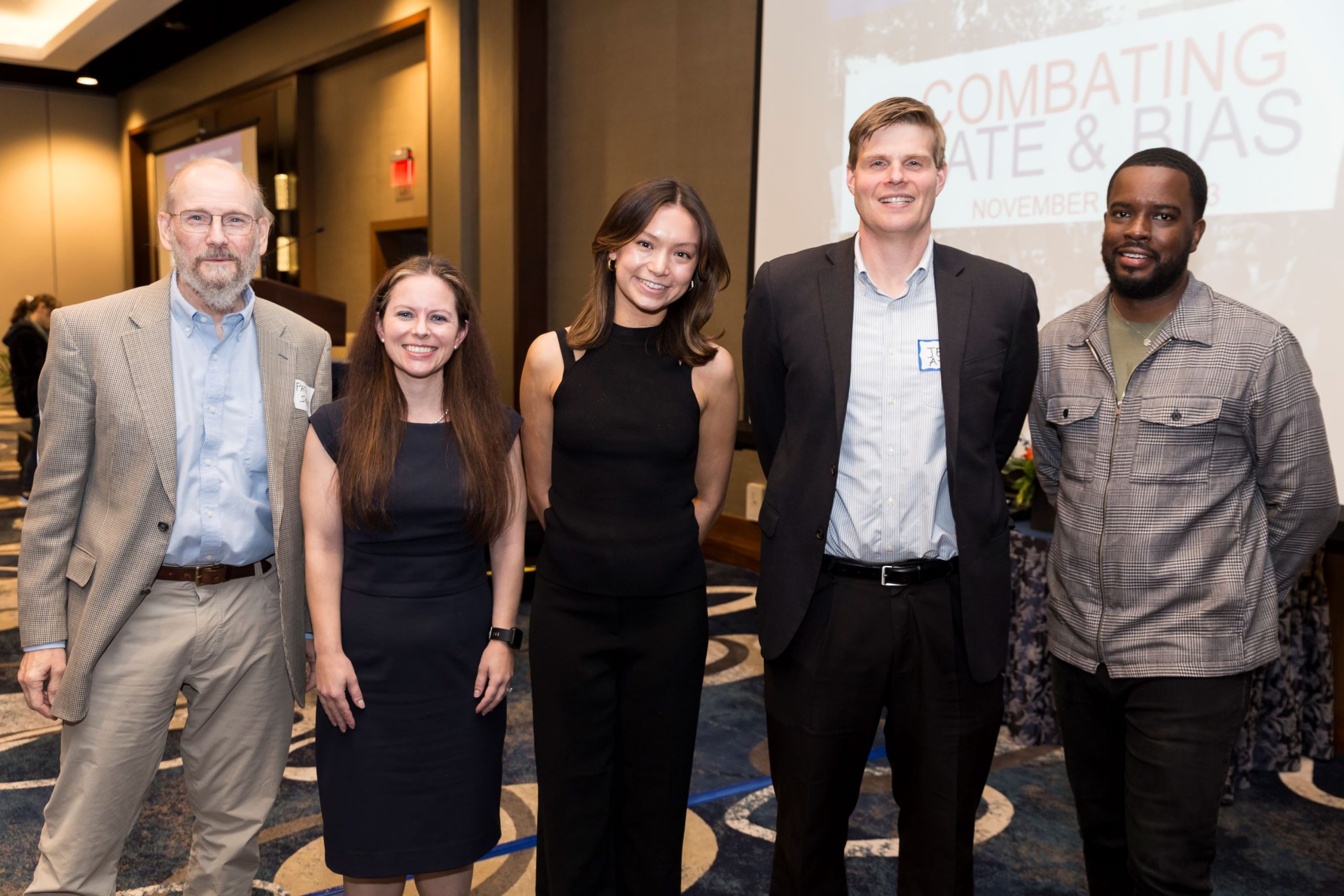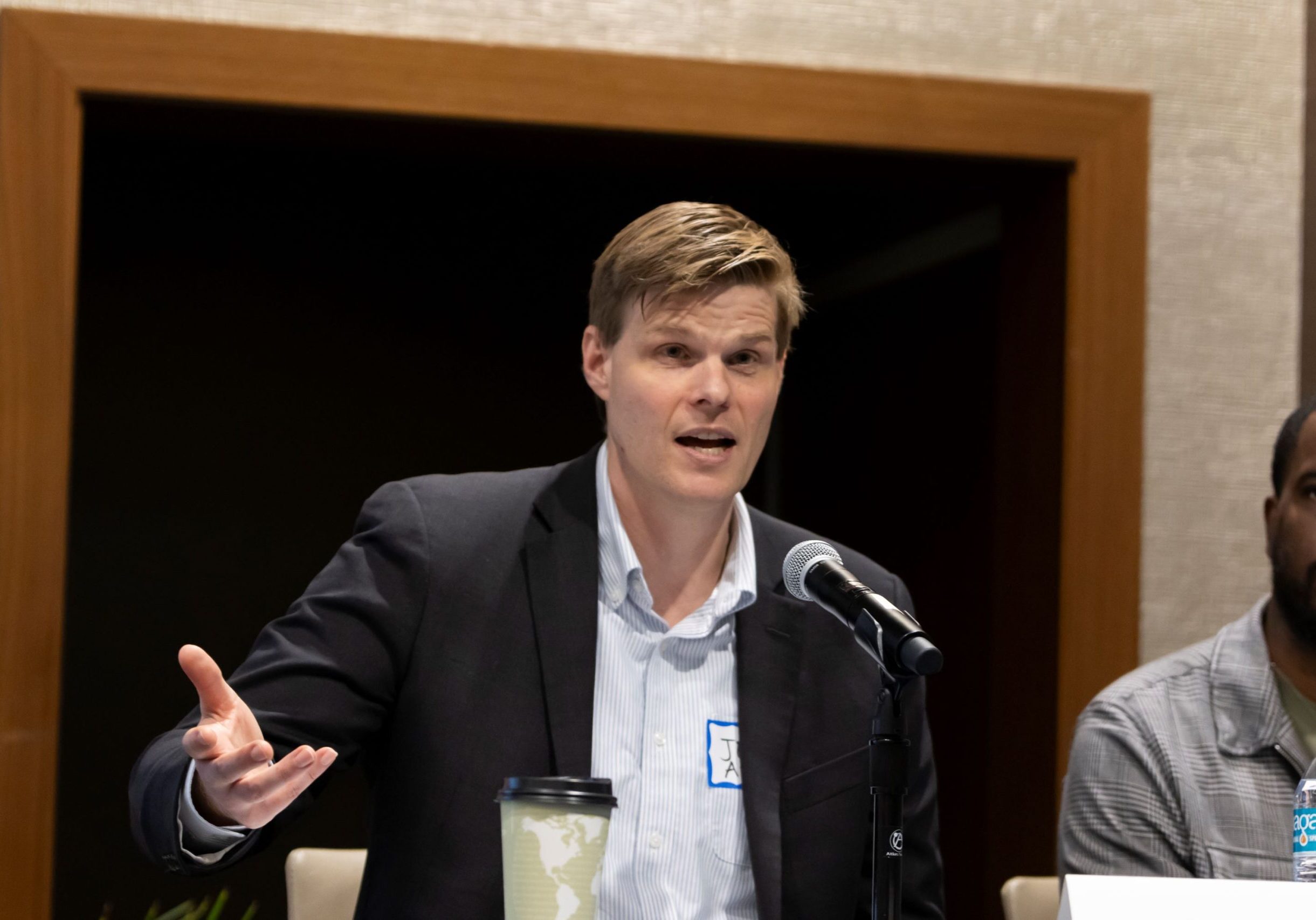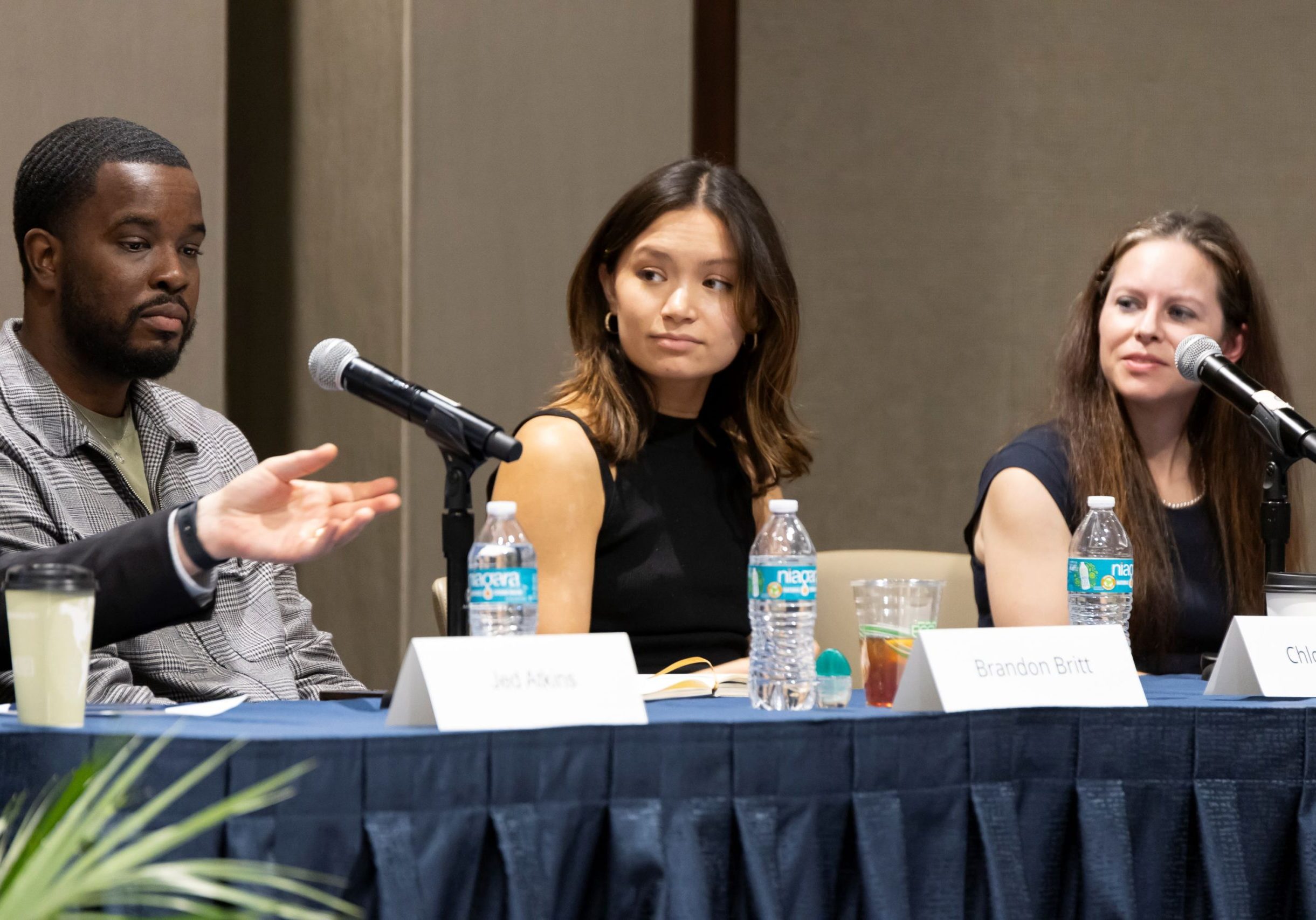
Combating Hate and Bias Recap:
The Unifiers
Rosa Golchin ('24)
Feb 27, 2024
The final panel of the Combating Hate and Bias Conference centered on “fostering transformative conversation across differences.” The panel consisted of a cross-disciplinary group of researchers and leaders who have incorporated disparate or oft-overlooked groups into critical political conversations. The Panel included Professor Jed Atkins, Professor Lindsey Haynes-Maslow, Brandon Britt, Chloe Nguyen, and Professor Pate Skene who served as the moderator.
Professor Adkins is the E. Blake Byrne Associate Professor of Classical Studies and an associate professor of Political Science at Duke University with a speciality in Roman political philosophy and its enduring legacies for modern liberal democracies. Professor Haynes-Maslow serves as an Associate Professor in the Department of Health Policy and Management at the University of North Carolina at Chapel Hill where she studies the intersection between public health and nutrition, as well as the impact of government policies and programs on health behaviors. Britt is an Access Services Librarian at Perkins Library whose passion for connecting people to information has informed his initiatives in adult programs and outreach at Charleston County Public Library and research support at University of South Carolina's Thomas Cooper Library, among other engagements. Nguyen is a Braver Angels Student Fellow, Nakayama Scholar, and Alice M. Baldwin Scholar at Duke University who is passionate about understanding the psychological drivers of intergroup conflict like political polarization and developing interventions to address them. Professor Skene is a Senior Research Scientist at the University of Colorado Boulder and an Associate Research Professor of Neurobiology at Duke University. He is trained as a neurobiologist and attorney, and as a researcher he investigates rain mechanisms involved in decision-making related to law, cooperation, and risk.

Professor Adkins emphasized the importance of fostering “intellectual hospitality” by creating environments in which individuals, especially students, value curiosity and exercise their imaginations. He detailed the way he has manifested this approach in his own teaching practice, through dialogue groups in which students are encouraged to share their experiences and stories and trips in which students disconnect from technology and reconnect with their peers. He pointed to the unique role of university campuses in enabling the meaningful dialogues that create understanding, sympathy, and curiosity between students. Britt continued this thread on the centrality of universities for connecting people and allowing the exploration of intellectual curiosities. He explained his role as a librarian as tackling “how to connect people to the resources they need, how to connect people to the experiences that they need and how to connect people to each other.” He also underscored the importance of empathy in creating spaces in which students and other members of campus are able to mostly deeply engage with their interests and inclinations.

Nguyen shared her experience as an undergraduate and the barriers students often face in translating their passions from the university setting to Durham and the broader communities to which they belong. This brought her to conducting research on the psychological drivers of political polarization, during which she realized that much of polarization can be attributed to false assumptions about identity and ideology based on one’s party affiliation. She mentioned the role of “exaggerated media perceptions” in furthering this polarization and feeding into the misunderstandings that make political polarization such a rife challenge in American discourse.
Professor Haynes-Maslow spoke to her challenges conducting fieldwork and working in academia as a woman in agriculture and food studies. She shared some of the practices she implemented to center patience and curiosity in her research process, such as asking questions to understand the experiences and challenges of the communities in which she worked.


